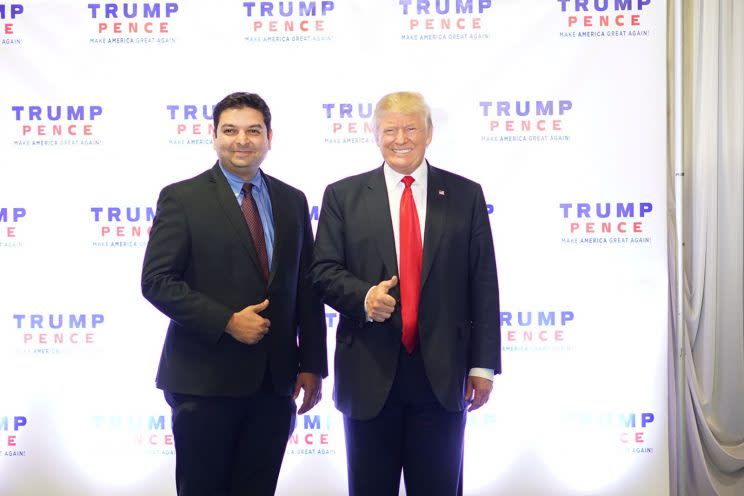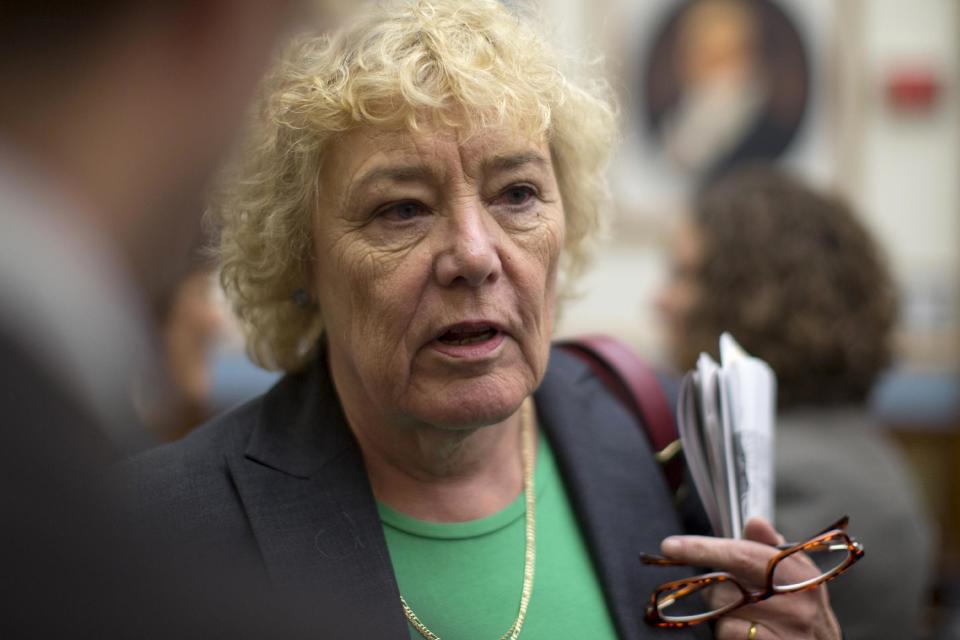Why there’s still hope about Trump’s H-1B visa plan for high-skilled immigrants
It seems every high-profile tech executive has openly condemned President Donald Trump’s executive order on immigration, which blocks citizens of seven Muslim-majority countries from entering the US for 90 days and indefinitely bars Syrian refugees.
Though Trump has yet to specify how he will change worker-visa programs for high-skilled immigrants, it’s a topic on the minds of leaders in the tech community. On Monday, Bloomberg obtained a copy of Trump’s draft proposal that would upend the work-visa programs that many tech companies rely on for a bulk of their workforce.
“Our country’s immigration policies should be designed and implemented to serve, first and foremost, the U.S. national interest. Visa programs for foreign workers…should be administered in a manner that protects the civil rights of American workers and current lawful residents, and that prioritizes the protection of American workers — our forgotten working people — and the jobs they hold,” according to the draft proposal reviewed by Bloomberg.
We don’t know when this measure will be made official, but the tentative plan should not come as a surprise given Trump’s repeated rhetoric around the need to prioritize and protect American workers. Earlier this month, Trump’s policy chief Stephen Miller suggested scrapping the current lottery process and instead soliciting visa petitions for jobs that pay the highest salaries.
This plan is a nod to a bipartisan bill first introduced to Congress in 2007 by Senators Chuck Grassley and Dick Durbin, which “prioritizes American workers and restores fairness in visa programs for skilled foreign workers.” The legislation, reintroduced last week, would get rid of the lottery system and crack down on outsourcing companies.

Vikram Desai — the vice president of Immigration Voice, a non-partisan advocacy group working toward “alleviating the problems faced by legal high-skilled future Americans in the United States” — told Yahoo Finance he is optimistic that Trump’s administration will help fix structural problems with the H-1B system.
“We welcome the steps the administration would take to reform the abused H-1B system, and are hopeful that the administration would focus on the abuse in the system so the system works in the best interest of American workers, genuine companies/employers, and, tax-paying law abiding legal skilled immigrants that have done everything right,” he said.
In a seemingly counterintuitive stance, Desai, who himself is an H-1B visa holder, said the solution is not to give more employers H-1B visas, but to instead provide them with the tools and expediency to pursue lives in the US.
The primary concern for H-1B visa holders is how to navigate the path to permanent residency and eventually US citizenship, which currently seems unattainable. In the meantime, employees on the H-1B visa often can’t ask for a raise, change jobs or travel freely without feeling anxious. H-1Bs are sponsored by employers and cannot be transferred from one employer to another. There are 1.5 million folks stuck in the backlog of trying to obtain permanent residency (i.e. a green card), according to Desai.
Currently, only 7% of the total number of green cards in the US can go to applications from a single nation. That means H-1B holders from countries with high demand like China, India and Mexico have to wait longer than other applicants for a green card.
“Employers see this loophole — H-1B visa holders are stickier employees — they’ll stay with your company in fear of losing their jobs. We believe that the current H-1B system needs a lot of reform and enforcement so that American workers don’t get displaced, and legal immigrants don’t get exploited,” he said.
Desai said he and other leaders of Immigration Voice met with then-candidate Trump at an event in New Jersey last October. They urged him to “raise awareness about how [high-skilled immigration] causes displacement of American workers and exploitation of legal immigrants.”
Trump said his administration would “fix these issues,” according to Desai, who found the response encouraging.
Currently, the H-1B is a lottery with 65,000 open spots and 20,000 additional spots allocated to those with advanced degrees from US institutions. The visa lasts three years, though individuals can apply for an extension of an additional three years, for a total of six years. The visa allows US employers to temporarily hire foreign workers in specialty occupations like scientists, doctors, engineers and computer programmers. Holders cannot remain in the US permanently and can only get additional extensions if their employer applies for their permanent residency (i.e. a green card) on their behalf.

Last week, California congresswoman Zoe Lofgren, a Democrat who represents Silicon Valley, introduced The High-Skilled Integrity and Fairness Act of 2017, a new bill that to curbs H-1B visa outsourcing abuse. In light of companies like Disney (DIS), Southern California Edison and the University of California San Francisco being scrutinized for allegedly replacing American workers by outsourcing to companies with cheaper H-1B workers, she laid out guidelines on a “market-based solution that gives priority to those companies willing to pay the most.”
Though many outspoken tech executives have emphasized that diversity is fundamental to the country’s innovation and in building the next crop of entrepreneurs, the current H-1B visa program actually doesn’t provide immigrants with one notion of the American dream — building a business.
“If we continue to bring these folks over, we have to give them rights. Simple rights like changing jobs or opening up a business,” Desai said.
“It’s been depressing and infuriating that all of a sudden, in the last 48 hours, executives are speaking out about this ban,” he added. “For years we’ve been trying to reach out to our CEOs. We have folks that get stuck every day at airports trying to return to the US.”
Organizations like Fwd.us, a group primarily founded and funded by Silicon Valley entrepreneurs, including Facebook’s (FB) Mark Zuckerberg, LinkedIn’s (LNKD) Reid Hoffman, and Microsoft (MSFT) founder Bill Gates, among others, are pushing for immigration reform, particularly in regards to high-skilled workers. Yahoo (YHOO) CEO Marissa Mayer is also listed as a contributor to the organization.
“It’s an indictment of Congress, not being able to do anything for two decades. This visa program existed before the worldwide web and it’s wildly prohibitive,” Fwd.us president Todd Schulte told Yahoo Finance last year.
High-skilled immigration reform could be one area where there can be a bipartisan agreement. And an overhaul of the system could benefit H-1B visa holders in the long-term.
Melody Hahm is a writer at Yahoo Finance, covering entrepreneurship, technology and real estate. Read more from Melody here & follow her on Twitter @melodyhahm.
